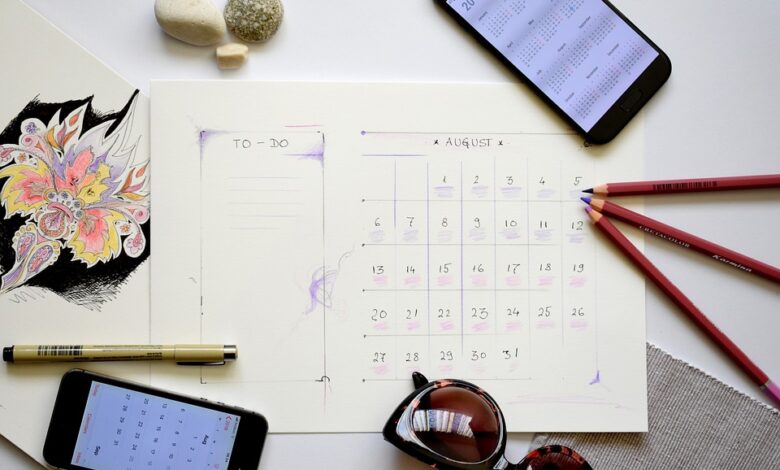10 reasons why using a planner can improve your productivity

10 Reasons Why Using a Planner Can Improve Your Productivity
In today’s fast-paced world, staying organised and productive is more important than ever. With so many responsibilities to juggle, it can be easy to feel overwhelmed and stressed. One tool that has proven to be incredibly effective in helping individuals stay on top of their tasks and priorities is a planner. Whether it’s a physical paper planner or a digital one, the act of using a planner can significantly improve your productivity in various ways. In this article, we will explore 10 reasons why incorporating a planner into your daily routine can make a positive impact on your productivity.
1. Set Clear Goals and Priorities
One of the primary benefits of using a planner is the ability to set clear goals and priorities. By taking the time to plan out your day, week, or month, you can identify the most important tasks that need to be accomplished. This allows you to focus your energy on the activities that will have the greatest impact on your overall goals. Having a visual representation of your priorities can help you stay organised and ensure that you are making progress towards your objectives.
2. Time Management
Effective time management is crucial for productivity, and a planner can be a valuable tool in this regard. By scheduling your tasks and appointments in a planner, you can allocate specific blocks of time to different activities. This helps you avoid overcommitting yourself and ensures that you have dedicated time for essential tasks. Additionally, by having a clear overview of your schedule, you can identify any potential conflicts or gaps in your time and make adjustments as needed.
3. Reduce Procrastination
Procrastination is a common obstacle to productivity, and a planner can help you overcome this by breaking down your tasks into manageable chunks. When you have a clear plan for what needs to be accomplished and when, it becomes easier to stay focused and motivated. By having a visual reminder of your deadlines and commitments, you are less likely to put off important tasks. Additionally, the satisfaction of checking off completed items in your planner can provide a sense of accomplishment that can further motivate you to stay on track.
4. Improve Efficiency
Planning ahead allows you to streamline your workflow and improve your efficiency. By mapping out your tasks and identifying the most efficient way to accomplish them, you can avoid wasting time or getting sidetracked. Additionally, by having a clear plan for your day, you can reduce the time spent on decision-making and transitions between activities. This can free up more time for focused work and result in greater overall productivity.
5. Reduce Stress and Overwhelm
When you have a lot on your plate, it’s easy to feel overwhelmed and stressed. A planner can help you manage these feelings by providing structure and clarity. By breaking down your responsibilities into manageable chunks and scheduling them in your planner, you can create a sense of control over your workload. This can reduce the feeling of being overwhelmed and help you approach your tasks with a clear mind and greater focus.
6. Set Realistic Expectations
Using a planner can help you set realistic expectations for what can be achieved within a given timeframe. By mapping out your tasks and allocating time for each, you can gain a better understanding of how much you can realistically accomplish. This can prevent you from overcommitting yourself and falling into the trap of setting unrealistic expectations. By having a clear plan, you can ensure that you are setting achievable goals and avoid feeling disappointed or stressed when things don’t go as planned.
7. Improve Accountability
A planner can also improve your accountability by providing a record of your commitments and progress. By documenting your tasks and appointments in your planner, you have a tangible reminder of what needs to be done. This can help hold you accountable for your actions and provide motivation to stay on top of your responsibilities. Additionally, having a written record of completed tasks can provide a sense of accomplishment and progress, further driving your productivity.
8. Enhance Decision Making
Having a clear plan for your day can enhance your decision-making skills by providing a framework for prioritising and allocating resources. When you have a visual representation of your tasks and goals, you can make informed decisions about how to best allocate your time and energy. This can help you avoid getting caught up in tasks that aren’t a priority and ensure that you are making the most effective use of your resources.
9. Improve Work-Life Balance
In addition to improving your productivity, using a planner can also help you achieve a better work-life balance. By scheduling your work tasks, personal commitments, and leisure activities in your planner, you can create a balance that allows you to be productive in all areas of your life. This can help prevent burnout and ensure that you have dedicated time for relaxation and self-care.
10. Foster Creativity and Innovation
Finally, using a planner can foster creativity and innovation by providing a structured framework for brainstorming and planning. By capturing your ideas and goals in your planner, you can track your progress and identify new opportunities for growth. Additionally, by creating a visual representation of your plans and priorities, you can gain new insights and ideas that can fuel your creativity and innovation.
In conclusion, using a planner can significantly improve your productivity by helping you set clear goals and priorities, manage your time effectively, reduce procrastination, improve efficiency, reduce stress and overwhelm, set realistic expectations, improve accountability, enhance decision-making, achieve a better work-life balance, and foster creativity and innovation. Whether you prefer a traditional paper planner or a digital one, incorporating a planner into your daily routine can be a powerful tool for staying organised and achieving your goals. By taking the time to plan and schedule your tasks, you can improve your productivity and create a sense of control and balance in your life.





